Finding common ground.
They were the most unlikely of seat mates.
Lyndon Johnson, the former president, out of office just six months, and Spiro Agnew, the new Vice President.
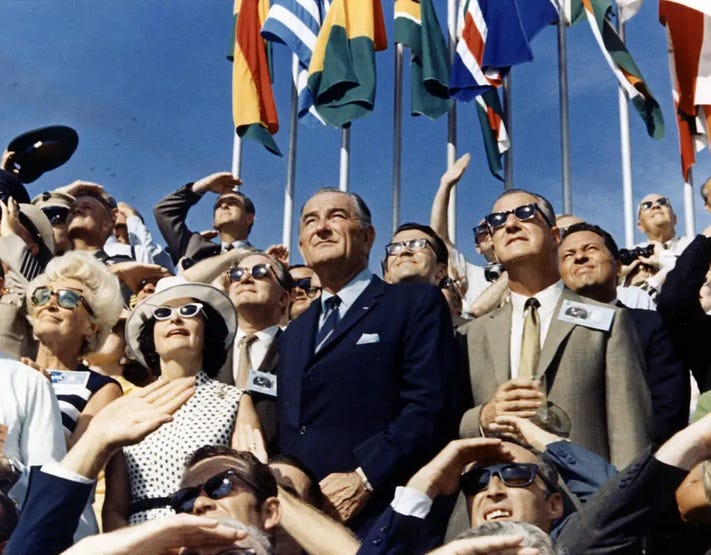
They had come to Florida from opposite poles of the political universe to watch men take off for the Moon.
And they sat there, side by side, dressed in suits and ties in 85-degree sunshine, and ‘made nice’ for the cameras.
It happened 55 years ago.
The Moon launch was a day of national celebration, joined in by people from across the globe.
Thousands had crowded into VIP bleacher seats to watch the liftoff, including comedians Johnny Carson and Jack Benny, Senator and former GOP presidential candidate Barry Goldwater, and aviator Charles “America First” Lindbergh.
Agnew had come into office alongside Richard Nixon, the self-proclaimed champion of the “Silent Majority.”
And their election in November 1968 had been a squeaker.
The ‘68 Democratic ticket, led by Johnson’s Vice President, Hubert Humphrey, had been gaining ground in the final weeks.
Another couple of days could have made the difference for Humphrey, election experts say.

Nixon had boosted his chances by sabotaging Johnson’s October plan to end the war in Vietnam.
Nixon’s secret emissary had made it clear to South Vietnam’s leader that ‘they could get a better deal’ if they waited for Nixon to take over.
And so, they did.
Johnson and Humphrey knew about Nixon’s treachery but decided not to publicize it.
At the time, they lacked hard proof and worried about fracturing the country.
But in a phone call to Republican Senator Everett Dirksen, Johnson had called Nixon’s dirty trick “treason.”
And Dirksen, the Senate Minority Leader, had agreed.
So, there they sat, LBJ and Agnew — political enemies — watching the spectacular launch of a spaceship which would bring two men to the surface of the Moon.
And they smile and chat, but mostly with other people.
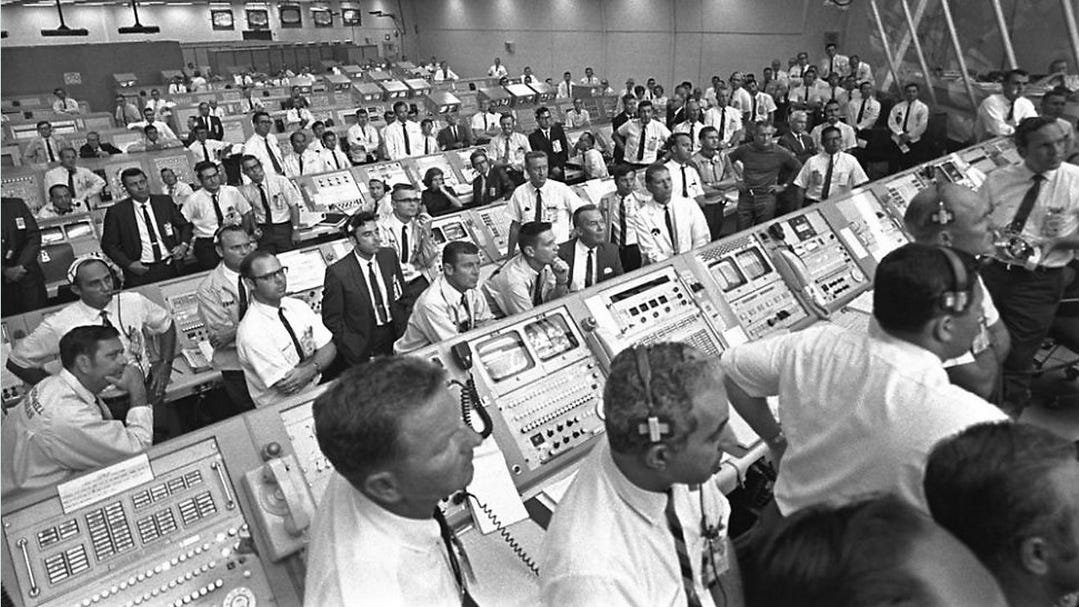
The US space program had been Johnson’s pet project during his time as Kennedy’s Vice President.
And now, he shared this triumphal moment with a man who’d later resign the vice presidency in disgrace.
Agnew’s long history of pocketing kickbacks, as a Maryland state official and as Vice President, would catch up with him in 1973.
He’d been called Nixon’s “attack dog” for the scorching rhetoric he used against Democrats, peace activists and ethnic groups.
Nixon opponents, Agnew would later say, were “nattering nabobs of negativism.”
But in this moment of national triumph, we see a picture of unity.
Neither man had abandoned his principles or agreed to ‘fall in line’ behind the other.
Instead, these political enemies found common ground in a moment of achievement in which both political parties had played a role.
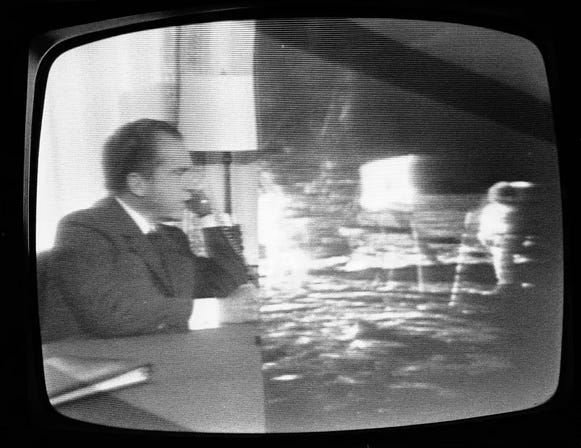
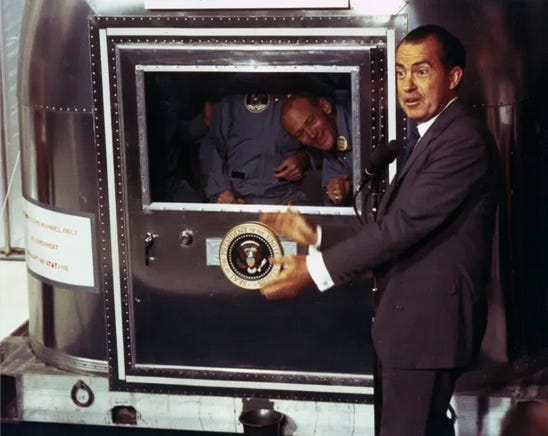
So, what’s the lesson in this story?
Maybe this: national unity won’t come from looking at where we are now.
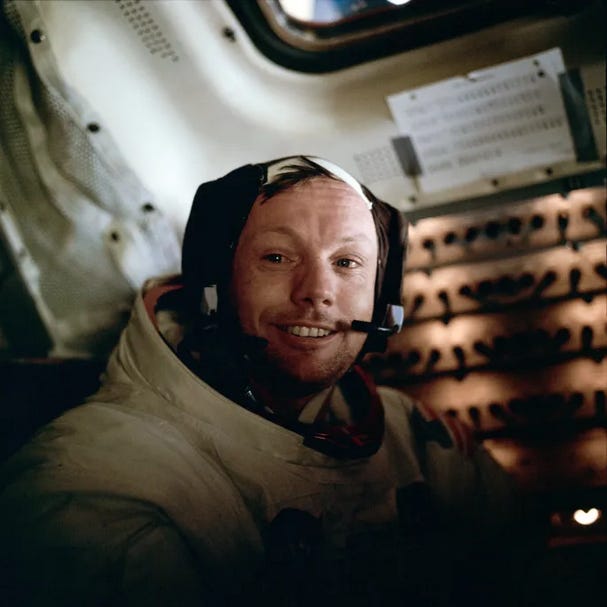
But sketch a lofty dream and people of all stripes will roll up their sleeves to get there.
******************************
I’ll see you tomorrow.
— Brenda



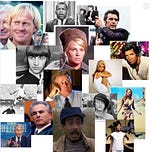


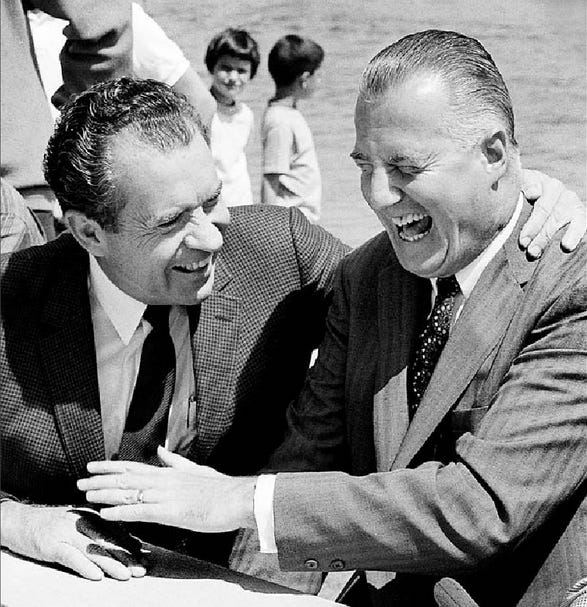
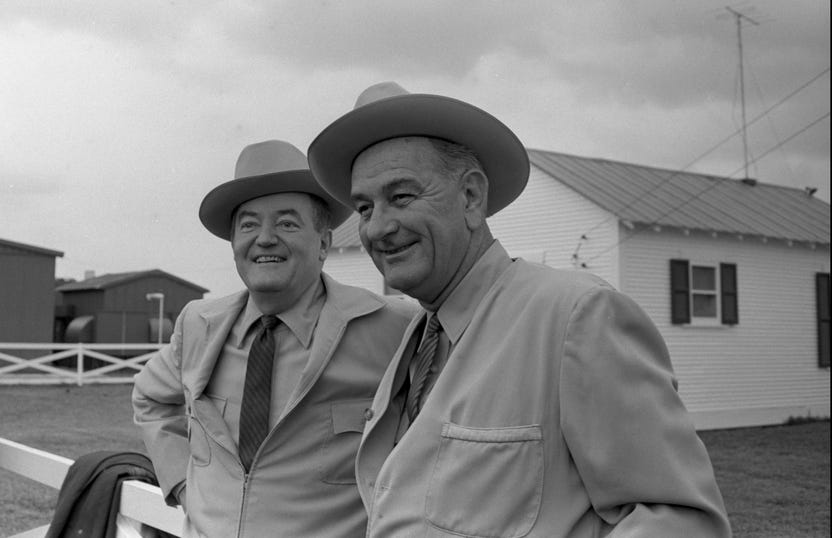
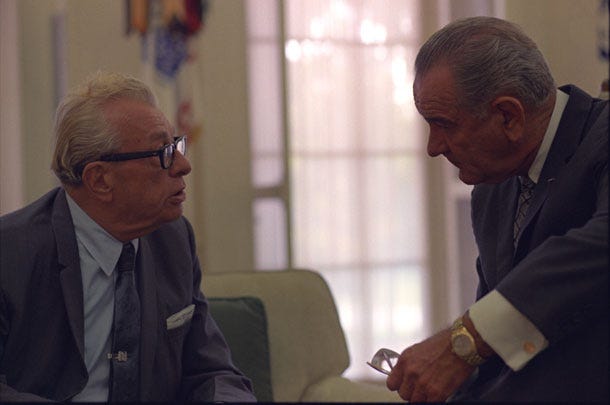
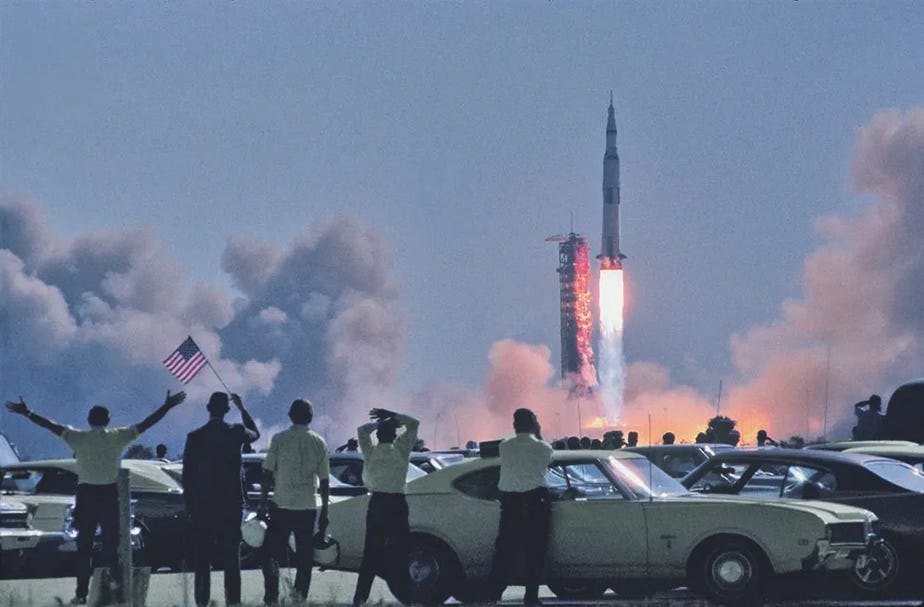
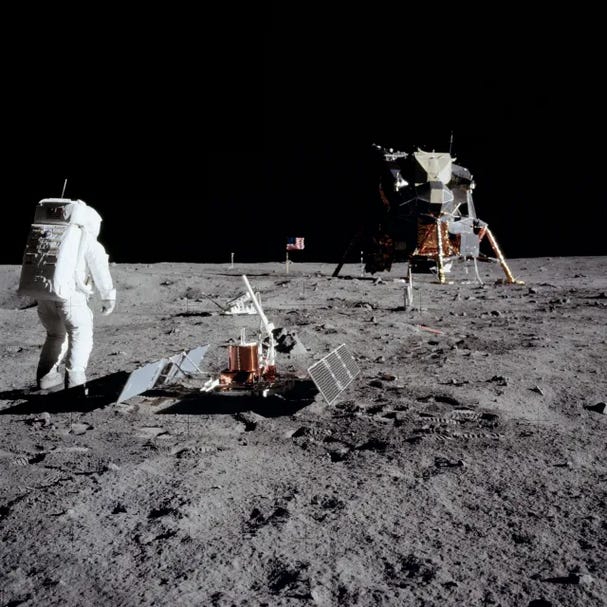
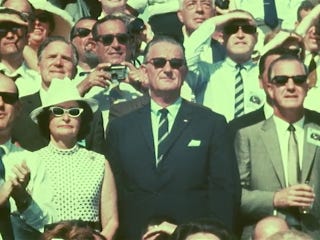









Share this post